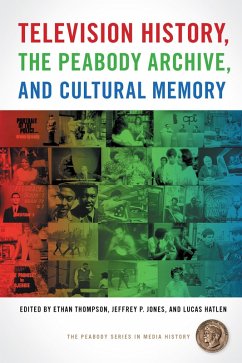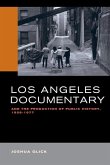Television History, the Peabody Archive, and Cultural Memory is the first edited volume devoted to the Peabody Awards Collection, a unique repository of radio and TV programs submitted yearly since 1941 for consideration for the prestigious Peabody Awards. The essays in this volume explore the influence of the Peabody Awards Collection as an archive of the vital medium of TV, turning their attention to the wealth of programs considered for Peabody Awards that were not honored and thus have largely been forgotten and yet have the potential to reshape our understanding of American television history.
Because the collection contains programming produced by stations across the nation, it is a distinctive repository of cultural memory; many of the programs found in it are not represented in the canon that dominates our understanding of American broadcast history. The contributions to this volume ask a range of important questions. What do we find if we look to the archive for what's been forgotten? How does our understanding of gender, class, or racial representations shift? What different strategies did producers use to connect with audiences and construct communities that may be lost?
This volume's contributors examine intersections of citizenship and subjectivity in public-service programs, compare local and national coverage of particular individuals and social issues, and draw our attention to types of programming that have disappeared. Together they show how locally produced programs-from both commercial and public stations-have acted on behalf of their communities, challenging representations of culture, politics, and people.
Because the collection contains programming produced by stations across the nation, it is a distinctive repository of cultural memory; many of the programs found in it are not represented in the canon that dominates our understanding of American broadcast history. The contributions to this volume ask a range of important questions. What do we find if we look to the archive for what's been forgotten? How does our understanding of gender, class, or racial representations shift? What different strategies did producers use to connect with audiences and construct communities that may be lost?
This volume's contributors examine intersections of citizenship and subjectivity in public-service programs, compare local and national coverage of particular individuals and social issues, and draw our attention to types of programming that have disappeared. Together they show how locally produced programs-from both commercial and public stations-have acted on behalf of their communities, challenging representations of culture, politics, and people.
Dieser Download kann aus rechtlichen Gründen nur mit Rechnungsadresse in A, D ausgeliefert werden.









